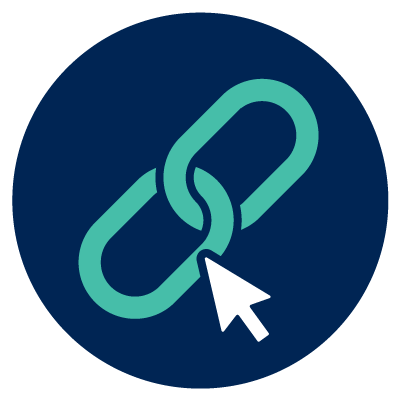Dealing with discrimination at work
Australia has laws to make sure that people with disability are treated fairly. However, disability discrimination and harassment sometimes still happen, including in the workplace. Find out what you can do if this happens to you.
What is disability discrimination?
Disability discrimination is when a person with disability is treated less fairly than people without disability.
People might also discriminate against relatives, friends, carers, co-workers or other people who know a person with disability.
In the workplace, discrimination can happen:
- when you’re applying for a new job
- while you’re doing your job
- when you’re applying for a promotion
- when you want to do training.
Examples of discrimination
These are just a few examples of what disability discrimination at work might look like:
- A person who uses a wheelchair applies for a promotion into a job serving customers. They don’t get the promotion because the manager says customers might feel ‘uncomfortable’
- A person who is deaf can’t get the same job training as other staff because the training isn’t in a format they can use
- A person with autism applies for a job and gets to the interview stage. They tell the employer about their autism and ask to bring a support person to the interview. The employer says no because they can’t give any ‘special treatment’
- A person who works in hospitality has a physical disability with medical clearance to work no more than 5 hours a shift. Their employer keeps giving them longer shifts.
What is harassment?
Harassment is a type of discrimination. Examples of harassment that are related to disability might be:
- teasing a person because of their disability
- asking questions about a person’s disability, when that person said they don’t want them too
- Making fun of a person with disability through jokes or doing gestures.
What to do if you experience discrimination or harassment
If you think you’ve been discriminated against or harassed because of your disability, there are different things you can do.
Talking to the other person
In some cases, you might be able to work through the issue by talking to the other person.
To do this, you could:
- ask for a meeting with the person to explain how you feel – take along another person, who is not involved with the issue, can sometimes a good idea
- write the person a message or email
- find out what work the other person does – this can sometimes help develop understanding and good relationships
It can be a good idea to talk to someone you trust about it first. This can help you decide what you want to say.
If you don’t feel safe or comfortable contacting the person, you don’t have too. Instead you can talk to someone else in the workplace, such as a supervisor or your Disability Employment Services provider, if you have one.
Raise it with your employer
In the case of an ongoing or serious issue, you can talk to:
- your supervisor or another senior person
- your workplace disability contact officer, if there is one
- someone in the human resources (HR) department.
You may also want to check if your organisation has its own complaints process you can follow.
Complain to an anti-discrimination organisation
If raising the issue with your employer doesn’t help, you can complain to:
- the Australian Human Rights Commission
- Fair Work Commission
- state and territory anti-discrimination organisations.
Below are some ways to do this.
Making a complaint to the Australian Human Rights Commission
You can make a complaint to the Human Rights Commission no matter where you live
in Australia. The service is free and independent.
Your complaint needs to be in writing. There are different ways you can send it to the Commission:
- fill in the online complaints form
- print off the form, fill it in and either post the form to GPO Box 5218, Sydney 2001 or fax it to 02 9284 9611.
Your complaint should include:
- what happened
- when it happened
- where it happened
- who was involved
- the names of anyone else who can say what happened.
If you can’t write down your complaint, get someone you trust to write it for you. The Commission can also help you write it. For more information, visit the Commission’s website or phone 1300 656 419.
What happens after you make a complaint
The Commission can only look into your complaint if the law says it can. If they can’t deal with your complaint, they will write to you and explain why.
If they look into your complaint, they might contact the other person involved, to get their side of the story. The Commission will then work with you and the other person to find a solution everyone agrees with. This is called conciliation.
If conciliation doesn’t work, you can decide whether to take your complaint to court.
Other support
The Fair Work Commission website has information on how to deal with different workplace disputes. The Fair Work Commission can also tell you how to make a claim if you think you have unfairly lost your job due to your disability. They can also help if you have experienced discrimination in some other way.
There are also organisations in each state and territory that can help with information about your rights at work.
- ACT – ACT Human Rights Commission
- NSW – Anti-Discrimination New South Wales
- NT – Northern Territory Anti-Discrimination Commission
- Queensland – Human Rights Commission Queensland
- SA – Office of the Commissioner for Equal Opportunity
- Victoria – Victorian Equal Opportunity and Human Rights Commission
- WA – Equal Opportunity Commission
Related pages
Last updated:
Legal Eagle Jude thanks JobAccess for supporting stellar career
Jude Lee – once a litigation lawyer in the big end of town prosecuting the likes of giant corporate raider the late Alan Bond – has always had a vision of what was possible for him.
Dealing with discrimination at work
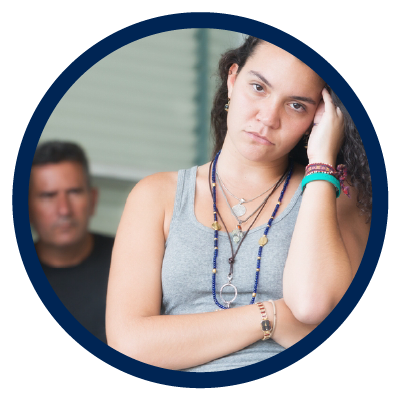
There are things you can do if you experience discrimination at work.
Disability discrimination
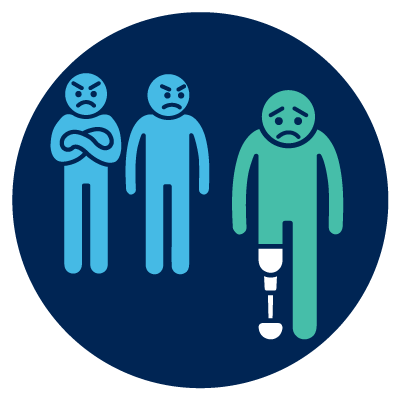
You might experience Discrimination is when someone treats you unfairly because of a part of who you are. This includes how services treat you. For example, your disability or age. at work.
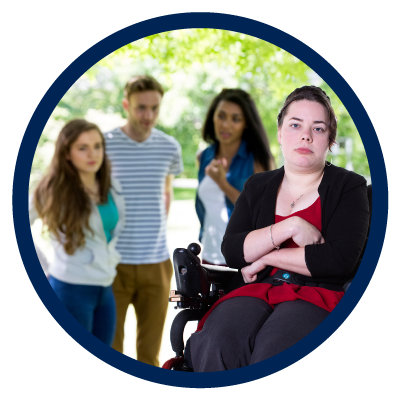
Disability discrimination is when someone treats you differently than people who don’t have a disability.
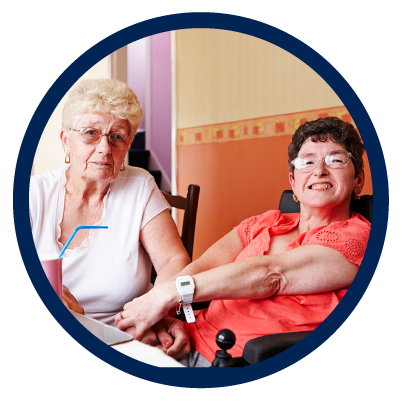
Disability discrimination can also happen to your:
- friends and family
- carers
- people who work with them.
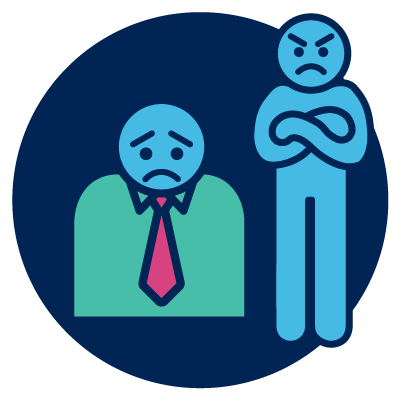
Discrimination at work can happen when you:
- apply for jobs
- do your job
- ask for training
- apply for a A promotion is when you are in charge of more things at your job.
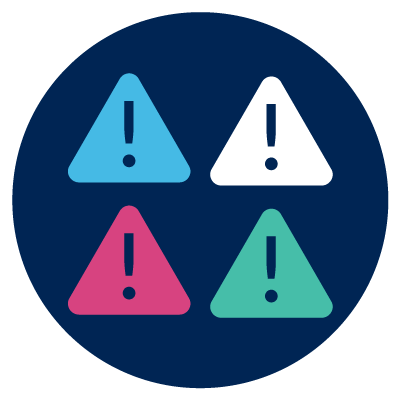
Discrimination can happen in many ways.
We will give you some examples below.
Each of these examples is discrimination.
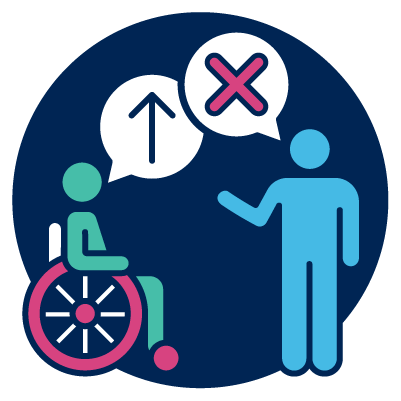
A person who uses a wheelchair applies for a promotion.
As part of the new job they will have to serve customers.
The manager doesn’t give them the promotion because it might make customers uncomfortable.
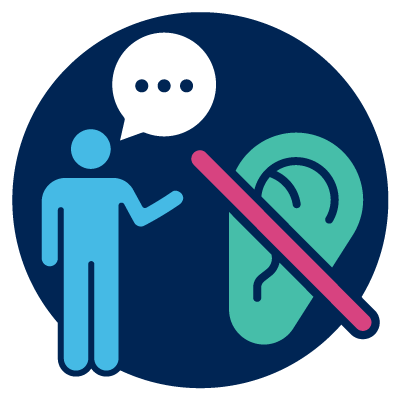
A person who is deaf wants training in their job.
The training is only spoken, which the person can’t hear.
Because of this they can’t get training.
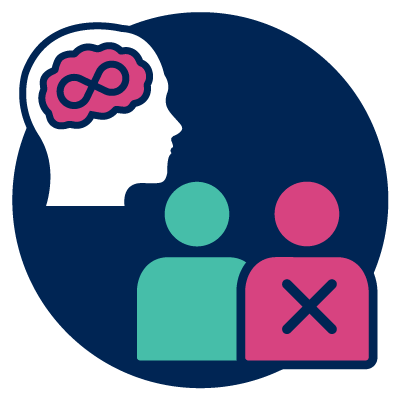
A person with Autism is a disability that affects how you think, communicate and deal with others. applies for a job.

They ask the An employer hires people to work for them. if they can bring a support person with them to the interview.
They explain they have autism.
The employer says they can’t bring their support person because they think it’s ‘special treatment’.
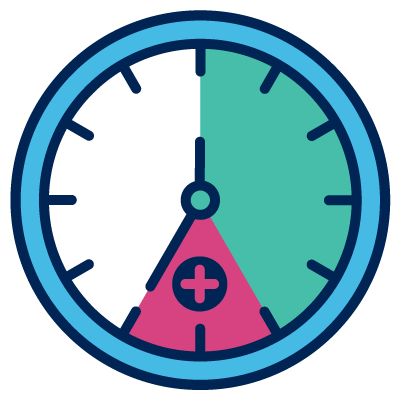
A person with a physical disability works in a restaurant.
Their doctor told them they can only work 5 hours at a time.
Their employer keeps giving them more than 5 hours of work at a time.
Harassment

You might experience Harassment is when someone treats you in a way that makes you feel uncomfortable. It’s a type of discrimination.

Harassment includes:
- saying mean things about a person because of their disability
- asking about a person’s disability when they have told them not to
- pretending to be a person with disability to make fun of them.
What to do if this happens to you
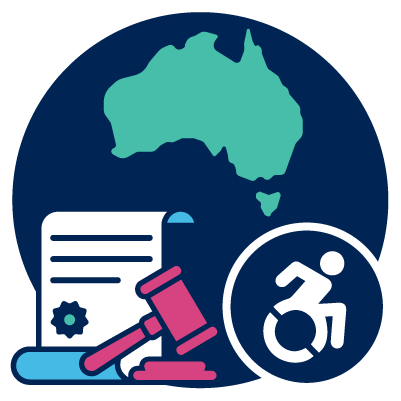
There are laws in Australia about how everyone must treat people with disability fairly.
But discrimination against people with disability can sometimes still happen.
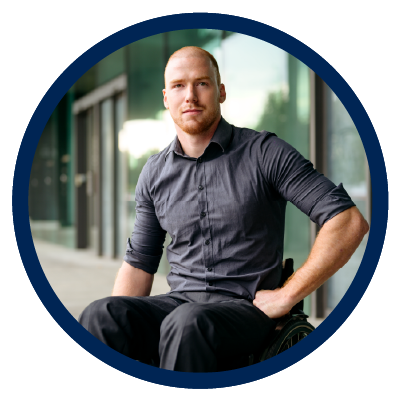
There are things you can do if you experience:
- discrimination
- harassment.
You can talk to the person
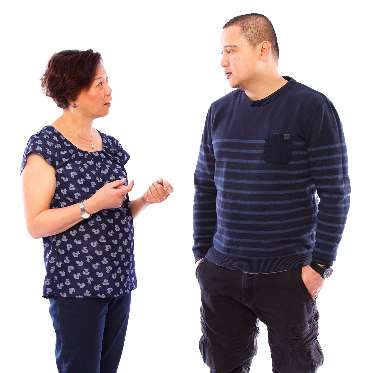
Sometimes you can stop discrimination by talking to the other person.
You should think about what you want to say before you do.
You can ask someone you trust to help you explain how you feel.

When you are ready, you can ask for a meeting with the person.
Or you can write them a message or email.
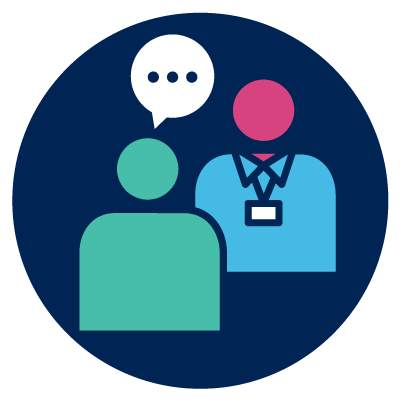
But you don’t have to talk to them if you don’t feel:
- safe
- comfortable.
You can talk to someone else at work.
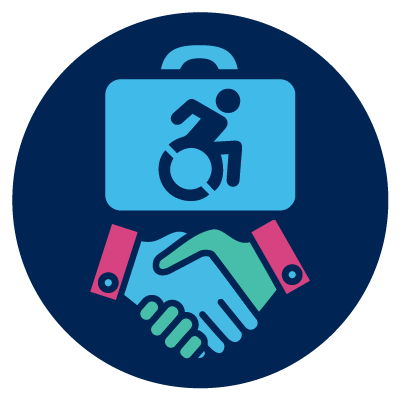
You can talk to the person’ change the DES provider definition: DES providers helps people with disability find and keep jobs.
You can tell your employer

If you need help to stop discrimination, you can talk to your manager.

Your employer might have someone whose job it is to support people with disability.
If your employer has a person like this, you can talk to them.
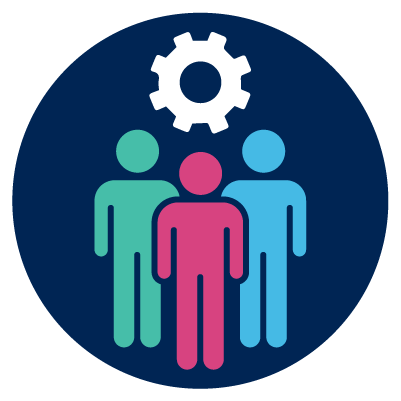
Your employer might have a People who work in human resources support other people who work for that employer. department.
If your employer has a human resources department, you can talk to them.

You can check if your employer has a plan for how to support you to make a When you make a complaint, you tell someone that something has gone wrong or is not working well.
What to do if your employer can’t help you
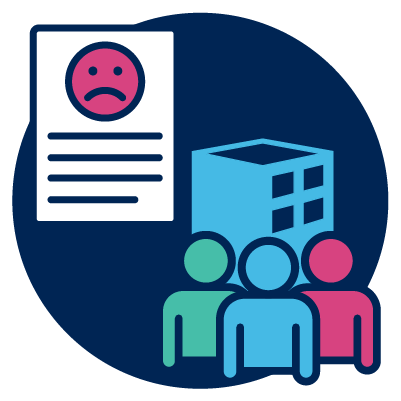
If you have spoken to your employer and you still need help to stop discrimination, you can make a complaint to another organisation.

You can make a complaint to:
- the Australian Human Rights Commission
- Fair Work Commission
- other organisations in your state or territory.
How the Australian Human Rights Commission can help
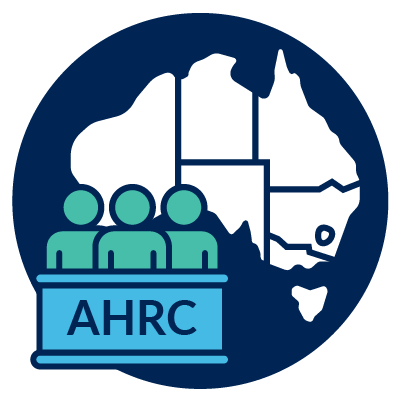
Everyone who lives in Australia can use the Australian Human Rights Commission (AHRC).
The AHRC makes their own decisions.
And their support is free.
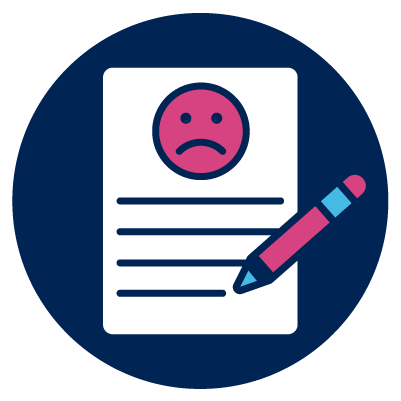
When you make a complaint to the AHRC, you have to write it down.
You can ask someone you trust to help you if you need.
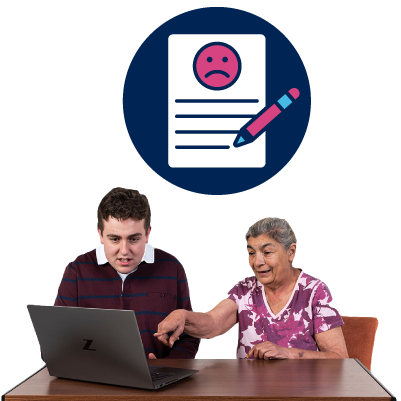
You can also ask the AHRC to help write your complaint.
You can find out more on the AHRC website.
Or you can call them – 1300 656 419

You can find the complaint form on the AHRC website.
You can fill out the form online.

You can also print it out and send it in the mail.
GPO Box 5218 Sydney 2001
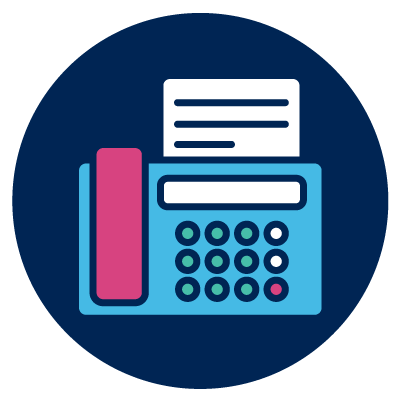
You can send it in by fax.
Fax – 02 9284 9611
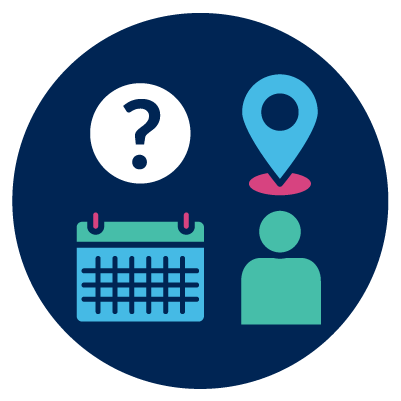
In your complaint you should include:
- what happened
- where and when it happened
- who was involved
- the names of other people who know what happened.
What happens after you make a complaint
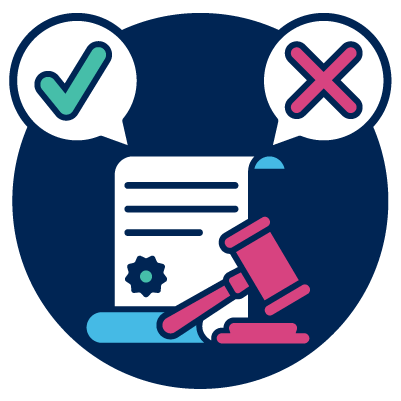
The AHRC will help you if the law says they can.
If they can’t help with your complaint, they will tell you why.
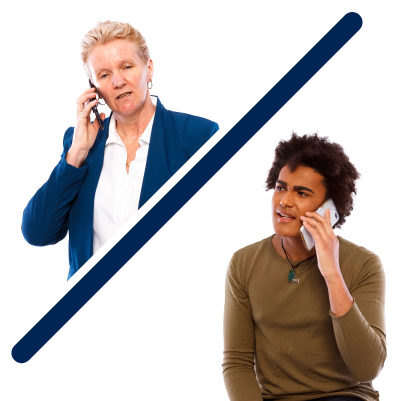
If they look into your complaint, they might contact the other person.
They will listen to what they have to say.
And try to fix the problem.
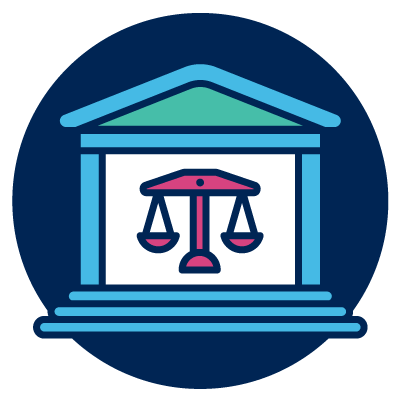
Sometimes this doesn’t fix the problem.
If this happens, you can decide if you want to take your complaint to court.
How the Fair Work Commission can help
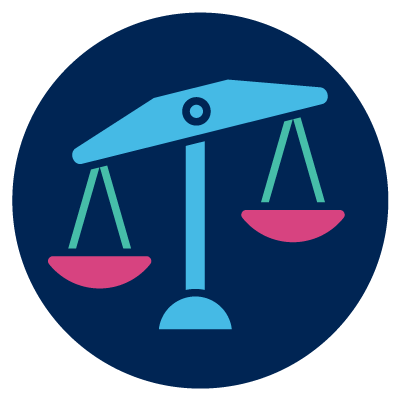
The Fair Work Commission might be able to help you if you have been treated unfairly at work.
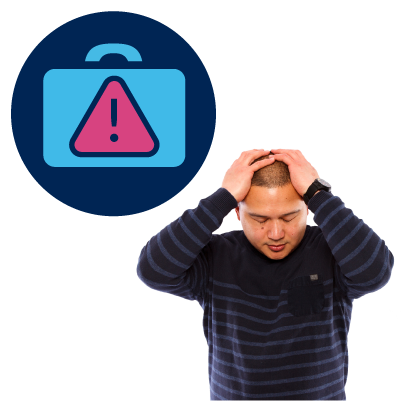
This includes if you:
- lost your job because of your disability
- experience discrimination at work.
You can find more information on the Fair Work Commission website.

You can also find information about your rights in the state or territory you live in:


